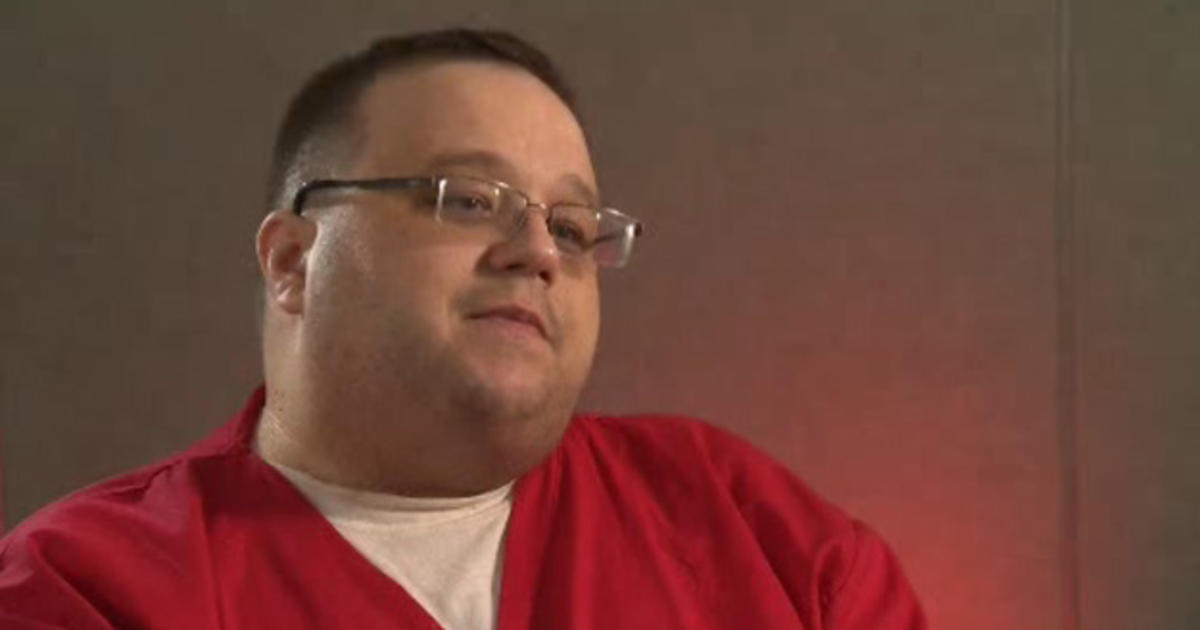In his latest legal battle with the federal government, James Sabatino, the notorious mob con man convicted of stealing millions in diamonds by posing as a music industry executive, claims he is being barred from writing to the Trump administration’s pardon czar, Alice Johnson.
In a motion filed Tuesday morning, Sabatino argues he is the only inmate in America blocked from writing Johnson. “Mr. Sabatino is generally considered the most restricted inmate in the United States,” his attorney, Israel Encinosa, noted.
Sabatino, 48, is serving a 20-year sentence at the Supermax facility in Florence, Colorado. As part of his plea agreement, he accepted communication restrictions designed to severely limit his contact with the outside world.
Restrictions meant to prevent criminal activity
According to the motion, the government told Sabatino he could not write to Johnson because of those restrictions, known as Special Administrative Measures, or SAMs. The measures are designed to prevent Sabatino from continuing to run his criminal organization from inside prison. Federal authorities say Sabatino, who they claim is affiliated with the Gambino crime family, orchestrated many of his cons while in federal custody in Miami by conspiring with prison guards and using smuggled cellphones.
Under the restrictions, Sabatino is allowed contact only with his attorney and one family member—his stepmother. His twice-monthly call with her is monitored by the FBI.
“All parties involved in this case are aware of why these restrictions are in place, and that is to prevent the defendant from using his communications to order additional crimes,” Sabatino’s motion states. “No reasonable argument can be made that the defendant’s communication with the pardon czar, a presidential appointee, would further any criminal goals.”
Sabatino claims even convicted terrorists under SAM restrictions are allowed to petition for pardons and commutations. As proof, the motion includes a Bureau of Prisons memo granting permission to Mohammed Mansour Jabarah, a former al-Qaida member who pleaded guilty to conspiring to blow up American embassies in Singapore and the Philippines, to write to Johnson.
“Despite Mr. Jabarah’s position within al-Qaida and his influence among other Muslims, he is permitted to correspond with Pardon Czar Johnson and the Office of the Pardon Attorney,” Encinosa wrote.
Encinosa added that, in Sabatino’s case, “there is no reasonable explanation for this restriction other than the government is attempting to obstruct the defendant’s ability to advocate for a commutation of his sentence. This is not what the restrictions are in place to do.”
According to the Bureau of Prisons’ website, Sabatino’s current release date is April 20, 2034.
“While the government very well may oppose the defendant’s request for a pardon or commutation, there is a process for them to do so,” the motion continues. “According to the guidelines of the Office of the Pardon Attorney, the prosecution will be consulted for their position before a recommendation and/or decision is made by the president.
“In any event, it is not appropriate for the government to prohibit the defendant from communicating with Pardon Czar Alice Johnson and the Office of the Pardon Attorney.”
The Justice Department and Johnson did not respond to a request for comment. The DOJ website notes that because of the government shutdown, there is no one available to answer questions.
Extreme isolation at Supermax “Suites” unit
The motion is the latest in a string of cases Sabatino has brought against the government, primarily focusing on the extreme isolation measures used to confine him.
Sabatino is housed in a special wing of the Supermax known as “The Suites.” He is not allowed to communicate with other prisoners and has limited interaction with prison staff.
According to previous filings, “There are only four cells in the wing; each 12-by-7-foot cell is equipped with a bed, desk, bathroom, shower and a separate recreation cage. Sabatino’s cell has a camera equipped with night vision and sound, subjecting him to 24/7 audio and visual surveillance monitored and recorded by both the Bureau of Prisons and the FBI.”
Sabatino is allowed to leave his cell for only a few hours a week. Each cell connects to a back door that opens into an outdoor caged area.
“The cages are individual cages, which do not allow physical contact between inmates,” the filing states. “The cages are below ground level and surrounded by four walls. The only thing visible from the cages is the sky. Since Mr. Sabatino has been in ‘The Suites,’ he has not gone outside to recreate because he is in poor health and, when alone in the cages, there is nothing to do. It is an empty cage roughly the same size as the cell.”
Until recently, the only other prisoner in The Suites with Sabatino was drug kingpin Joaquin “El Chapo” Guzman. The two men were in side-by-side cells for nearly six years. They could talk but not see each other.
After the pair filed a motion requesting permission to enter their respective “outdoor” cages at the same time so they could see each other, the federal government relocated Guzman to another part of the prison, leaving Sabatino alone in the wing.
Sabatino’s attorneys argue the isolation is intended as an additional punishment because he embarrassed the government by committing many of his crimes while already in federal custody.
The Brooklyn-born Sabatino stole millions in diamonds by convincing jewelers he was a record label executive needing the gems for music videos featuring Beyoncé, Jennifer Lopez and other A-list celebrities—all while sitting in the federal detention center in Miami.
Prosecutors contend Sabatino is not merely a con man but also dangerous, alleging he engaged in witness intimidation and conspiracy to commit murder. In the 1990s, he was accused of threatening to kill then-President Bill Clinton, a federal judge and a prosecutor.



